- Category
- Perspectives
How Did the West Let Putin Intimidate Itself? A Top Lithuanian Politician on Ukraine, Russia, and Europe
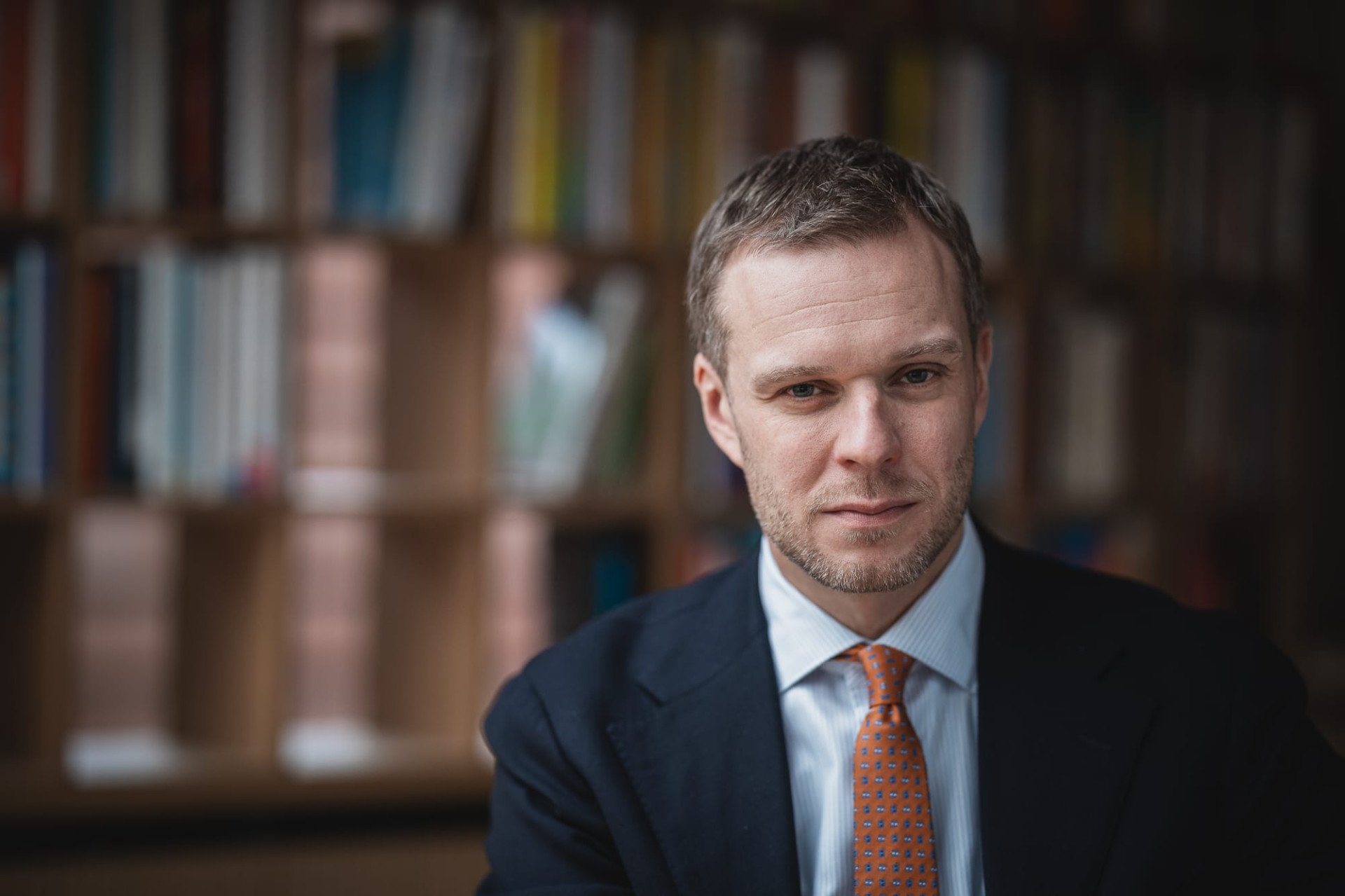
Three years into the largest war since World War II, Europe stands divided: those bordering Russia and Belarus see the threat firsthand, while others may still treat it as just Ukraine’s problem. Former Lithuanian Foreign Minister Gabrielius Landsbergis explains why Western hesitation only emboldens Russia—and what must be done before it’s too late.
Since the start of Russia's full-scale invasion, Lithuania has been one of Ukraine's loudest and most unwavering allies. Despite its population of just 2.8 million, Lithuania ranks among the top military donors per capita, supplying Ukraine with helicopters, drones, armored vehicles, air defenses, and extensive humanitarian aid.
Gabrielius Landsbergis, Lithuanian MEP and former Foreign Affairs Minister (2022–2024) has advocated for more substantial, faster action. In an interview with UNITED24 Media, he warned that the West is repeating past mistakes and that if Ukraine falls, Russia will not stop.
What’s at stake? What should the West do next? And why is Ukraine’s fight Europe’s fight?
You stepped down as minister of foreign affairs in Lithuania a few months ago. How has this transition been for you?
Unexpected. I thought I would have more free time, but I don't. There are many things that I can do, or one can do even without having a position as a minister. So I'm involved in important work that I really enjoy.
I continue helping Ukraine and work on strengthening the alliance resolution to help Ukraine. So, from the direction perspective, not much has changed. But from the intensity perspective, in some cases, I do even more than when I was a Minister.
Lithuania has been supporting Ukraine since the beginning of Russia's war in 2014, and you are among the top military donors to Ukraine in terms of GDP per capita while being quite a small country. What motivates Lithuanians to stand with Ukraine?
It's a mixture of different elements. First of all, in Lithuania, we have a generation of politicians, still a younger generation though, who remember the transition from the Soviet Union to freedom very clearly. So, for us, the concept of fighting for your freedom is very real. We had either our parents or ourselves standing in the streets, seeing Russian tanks roll through our capital while we were defending our country with the means that we had. And now we are enjoying that freedom.
When we see Ukrainians fighting for their freedom, we see ourselves. So there is this emotional link, of course. One must admit that there is also a very practical element – we understand that Ukraine is fighting for us, too.
There is no other way to put it. If Ukraine falls and isn't able to resist the Russian onslaught, where would the Russian eyes turn next? It's very likely to be in the Baltics.
The fight is already happening for our country, but at this stage, it is somewhere in the east of Ukraine.
Gabrielius Landsbergis
Lithuanian MEP and former Foreign Affairs Minister
You, personally, and Lithuania as a country have been very vocal about the threats Russia poses to the rest of Europe. Do you see any shifts in perception of the situation among European countries? Who has been more resilient to changes?
I wouldn't call the current situation the most honorable hour of the West. I was more hopeful when the war just started. I saw real unity in the purpose of Western societies when we saw demonstrations everywhere, from Washington to Vilnius to Berlin. Ukrainian flags were everywhere. Everyone was accepting Ukrainian refugees and figuring out the best way to help. That was the hour of Europe and the West. But then the Russians won something in our minds. He [Putin] frightened us.
He made us feel even more tired than those troops fighting in Ukraine in the trenches. Now, so many of us don't think about victory. Who just wants this to be over? They would like to go back to their normal lives and return to watching reels on Instagram or something like that rather than thinking about what to do with Ukraine. This upsets me and even frustrates me because it's not over until it's over. We should never have gotten tired before Ukrainians themselves.
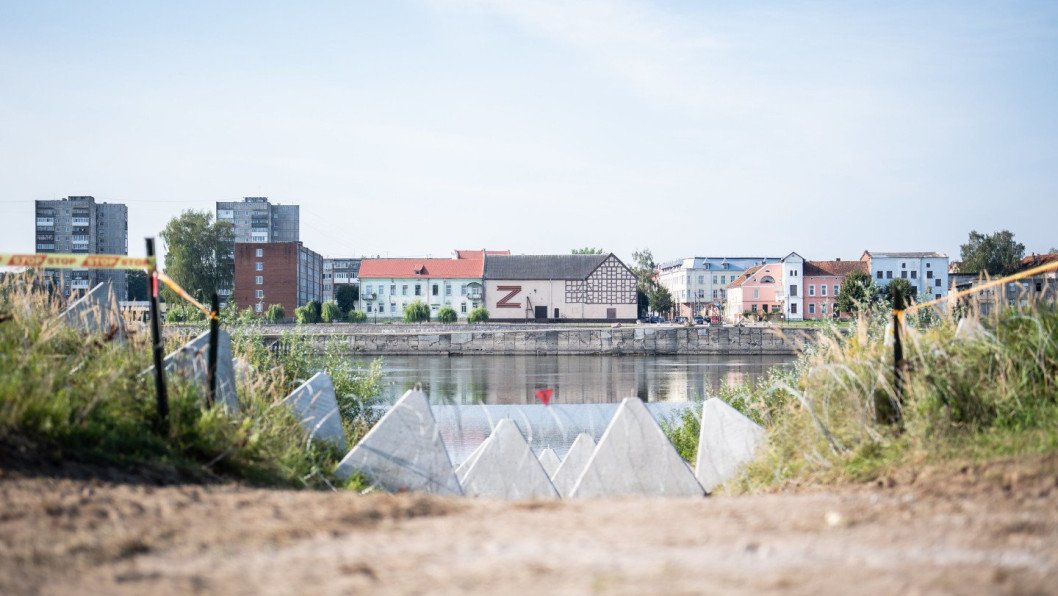
What do you think needs to happen to shift this paradigm again in favor of Ukraine?
Unfortunately, the lesson that countries like Lithuania are learning from the Ukrainian fight is that a lot depends on what the country is willing and able to do. If Ukrainian leadership had left Ukraine at the beginning of the war when the flight was proposed, Ukraine would not exist anymore. If Ukrainians decided to stop fighting when the support was lowering and not coming in, we would see a very different Ukraine right now. So this is the lesson.
I just had a conversation with some Georgian journalists, and they were asking if there is anything they can do to get the West to support protesters in the streets. The only advice I could give was to fight as if you were the only one fighting for your country. This is how you get support. As I said, it is not the best hour for the West.
Do you agree that if sanctions on Russia were imposed in full swing in April 2022, the war would be over by now?
I fully agree. It's not just the sanctions. I had a conversation with some high officials in the Ukrainian administration, and I remember we talked about Ukraine's needs. They said – we need tanks. We need airplanes. It sounded like a joke as if it would never happen. Then, two and a half years later, F-16s are flying in Ukraine. Three years later, Mirage planes are flying in Ukraine.
If Ukraine would have been allowed to start training from the very first day, F-16s would have been there by the end of 2022.
Gabrielius Landsbergis
Lithuanian MEP and former Foreign Affairs Minister
If we started talking not about the helmets and some bullets but about the Leopard tanks, and in hundreds, not tens, then the war would look very different. Russia would have had to reconfigure its whole attack vectors and then the way that it treated the war. Unfortunately, we did not do that. The same thing with sanctions. There are still so many ways Russia is avoiding sanctions.
For example, the Russian shadow fleet. Why is it taking so long for the EU to sanction Russia fully?
Europe doesn't feel an existential threat. There are still politicians who believe that it's possible to make a deal with Russia. Some politicians don't care what they would have to sacrifice for that deal because they believe that it's not them that they will need to sacrifice. It is easy for that politician to think that you know, it's just a part of eastern Ukraine, it's not my country, not my constituency, this is not where my electorate come from. So, it's not existential to me.
For Ukraine, it is existential. For us, it is as well. That is why we are behaving differently. Now we have two Europes arguing with each other. Part of it screams from the top of the lungs, saying, look, it is a crisis. It's worse than Covid. It's worse than anything because we might be under attack. And there is another part that says, look, you know, we're still fine. This whole story is just annoying. That's why Europe cannot make decisions; all decisions must be unanimous.
If Ukraine falls and fails to stop Russia, what will happen next?
Russia has a 1.5 million troop army armed with Chinese-produced weapons, Iranian drones, or North Korean missiles. They don't have an intention to stop. They don't have an intention to go back to a normal life because they captured one part of Ukraine. They intend to continue. The whole concept of a country built on war is to fight war.
For Russians and their mindset, finding a new enemy is probably the easiest thing that you can imagine. So everyone is under threat: Moldova, Romania, Poland, the Baltics, Norway, and Finland. Everyone is under threat because, for Russia, borders don't stop anywhere, as they themselves are saying.
Do you think they will have the capacity to move forward? Reports suggest that Russia's economy is declining slowly but surely.
It is declining. I'm convinced that the Russian economy is not in the state that it has been before the war. Sanctions bite. And if you do it successfully, it adds up. It eats your margins, so to speak. Everything is more expensive to do than it would be otherwise. So we're not saying that Russia would challenge NATO in the Cold War sense where we would have 400,000 troops amassed by the border of Poland and Lithuania waiting for the Russian attack, and then Russians attack but slightly lower; there's a clash; we beat them, and they are destroyed.
It's not what they're planning for. They're planning for us to be politically weak, demotivated, not prepared, and underfunded. They aim to divide the attention. They expect to catch us off guard when we are least prepared and unable to fight. They know that their economy is the size of the Netherlands. But they have 1.5 million troops, and we don't. They have drones and rockets, and we are building them. It will take a while because we're slower. So this is what they're counting on. This is where the danger comes from.
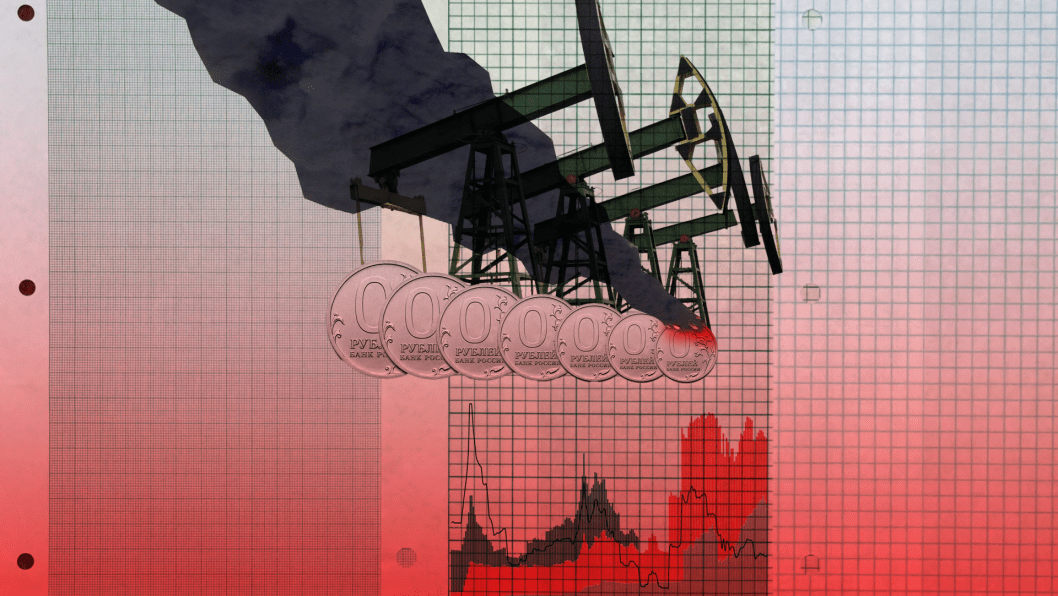
The previous world order, based on international law and democratic principles, is at least shaken, if not entirely over. How would you describe the new world order we are drifting towards?
Tough to say. Before January 20th, I might have told you. Now, with a new administration in the US, it's even more difficult to be sure what will happen. I like the term unpredictability, which means that everything is possible. Imagine the worst scenario: the world falls into total chaos. I would say it is possible.
Imagine the scenario where we approach an era of stability because the US exerts its power, stops Russia, deters China, and brings stability to the Middle East and elsewhere. I would say it is possible as well. It can happen. But, as the best practitioners say, you have to expect the best but prepare for the worst. So this is where we have to be now.
There's an opinion that the fall of Ukraine would be a fall for Trump. Would you agree with that? Why, if so?
I don't think he [Trimp] can allow himself to appear weaker in this situation. It's interesting because Putin has the same problem. But if you compare the US and Russia, it's clear where the power is. The only question is, who is ready to wield it in order to get the best result?
The way the war in Ukraine will be solved will determine how the West will look.
Gabrielius Landsbergis
Lithuanian MEP and former Foreign Affairs Minister
I see a scenario where President Trump, in order not to appear weak or lost, might put the blame on Europe. We are already witnessing signals of that. We know that Europe is not in an actual position to secure Ukraine. So if something happens to Ukraine in the future, Trump can say it's Europe's fault. So it's not he who lost; Europe did. In the end, it would be a squabble. I think that it's still the loss of the West.
Many international organizations have been quite successful in writing reports and condemning Russia. However, they were unsuccessful in stopping Russia or holding Russia accountable. What needs to change in how global security mechanisms work? Do you see a way out of this stagnation?
We're now at the power competition stage. There must be a price higher than Putin would be ready to pay to continue the war. If there is no such price, I don't believe he would reconsider.
Do you understand what kind of price that would be?
It can be financial. You mentioned Lithuania that we are among those top donors regarding support in GDP per capita. But in real numbers, this is not big. The whole Western support is not something huge. Consider the war in Afghanistan, which is $1.3 trillion, and the war in Iraq, which is $1.5 trillion. However, support for Ukraine is a tiny percentage of everything spent in those wars.
Imagine the West with the leadership of the United States saying, we will support Ukraine as long as the war takes, as long as the victory is achieved. And we all support it by a hundred billion every year until 2040. If it's not good enough, with 200 billion, we can handle that money.
For Putin, this amount changes the calculation. He cannot match it. He would be unable to find this money anywhere. He will understand that we're building a steel wall in Ukraine with equipment, drones, and trained people. It's getting harder and harder for him even to try to approach it. Then he would start to change his mind, probably because this is serious. 2040 is a long time. That's not a plan that he would try to test.
Do you think that stopping the war on the terms of a ceasefire without real security guarantees, like Ukraine joining NATO or nuclear weapons, is just a pause and the possibility for Russia to regroup and attack again? How can we avoid it? What shall Ukraine and the West do?
I think that it's approaching a very similar situation, like in 2014. Minsk agreements, in essence, were a ceasefire without security guarantees. So, people either have a very short memory or believe something has dramatically changed, but it hasn't. We might find ourselves in exactly the same situation.
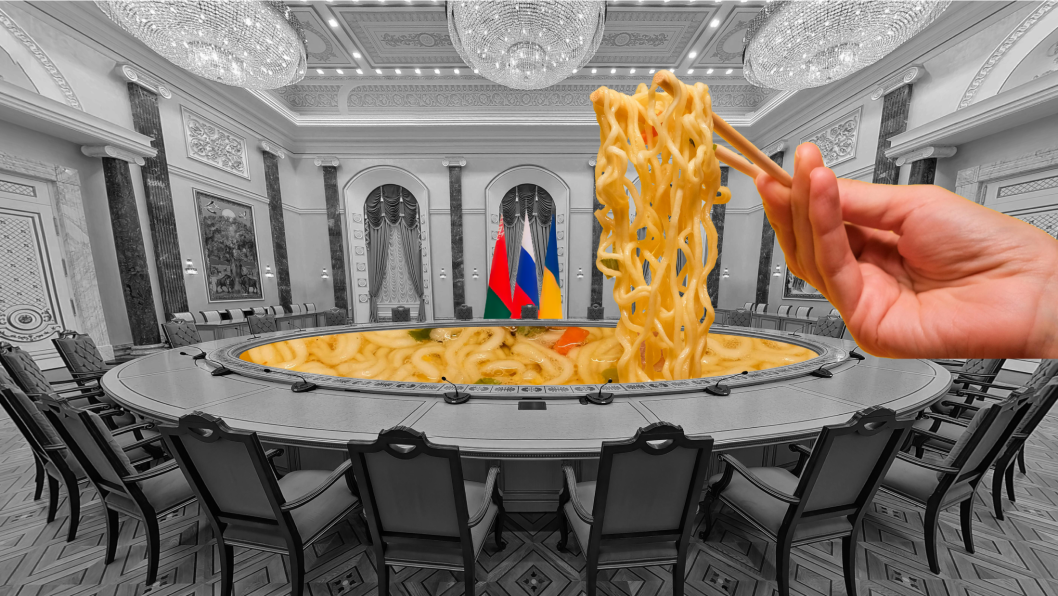
There are limited things that we can do. And then President Zelenskyy has been playing his cards right. He's a very skillful leader. He offered a very good deal to President Trump [about the rare earth minerals]. I think this is the best deal that Ukraine can offer. It doesn't seem fair, but it is an existential fight for Ukraine. When you're in this sort of fight, you must find ways to stay alive. I understand where President Zelenskyy is coming from.
Diplomatically, we must convince our partners that more things still need to be done and continue pushing for that. But then again, look for what we can do as individual countries and what Ukraine can achieve on its own because you've achieved so much, which is truly unbelievable: technologically, politically, and militarily.
What does the Ukrainian victory look like to you?
Ukraine is having a party in Crimea with all of its friends; being part of NATO, in my heart, that's the real victory. But it might take a while for this kind of victory.
I don't want to offer any halfway solutions, as Ukraine has won a lot; it's proven a lot. Stating that what has been accomplished is already a victory would only encourage complacency. And that's what many people in the West want to hear; it's enough for us not to do anything. No. We barely moved from our initial point. There's still a lot that needs to be done.

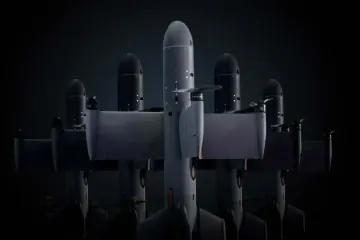

-588ae190d45987800620301cc34e2cf8.png)

-886b3bf9b784dd9e80ce2881d3289ad8.png)

-c42261175cd1ec4a358bec039722d44f.jpg)
-46f6afa2f66d31ff3df8ea1a8f5524ec.jpg)